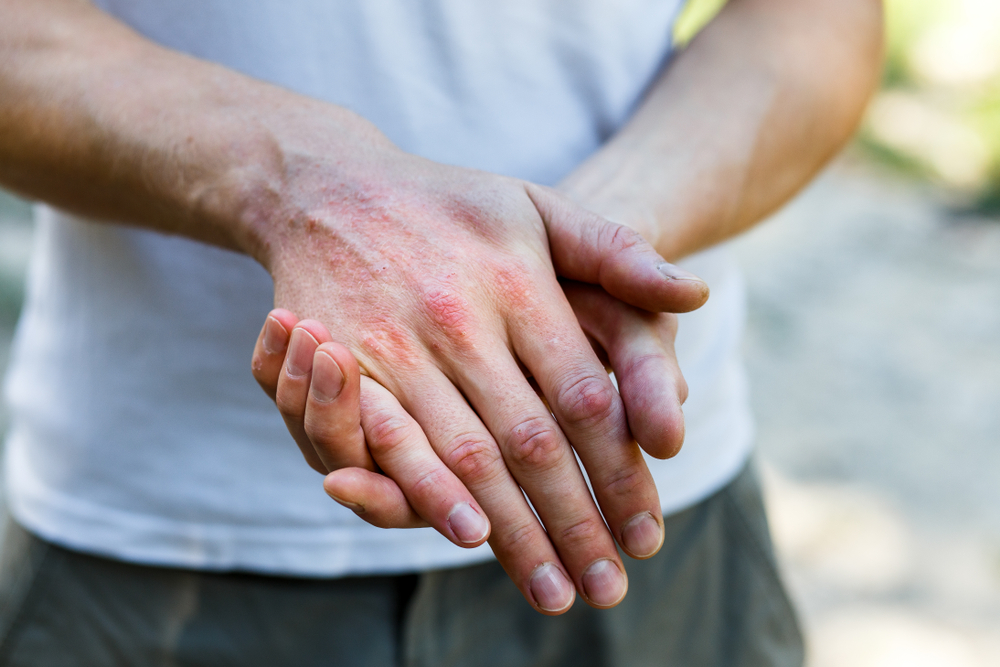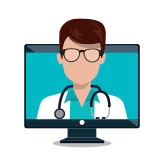What Are the Symptoms from Eczema?
This skin problem has numerous symptoms that include:
- Blisters on the skin
- Thicker skin underneath the rash
- Red, inflamed skin
- Painful lesions
- Intense itching
- Scaly, cracked, and dry skin
Where Does Eczema Occur on the Body?
Millions of individuals have this form of atopic dermatitis, and it can disrupt daily living. The most common body areas to find the eczema rash include:
- The Knees
- The Elbows
- The Scalp
- The Face
- The Chest
- The Feet
- The Hands
If you have allergies to plant pollen or chronic conditions such as asthma, then you are more likely to have eczema. This skin condition can make you feel itchy, and scratching the skin will make the rashes or blisters worse. Experts are still trying to understand what causes eczema, and they believe that it has a genetic component. However, there are other reasons for having eczema, including as a reaction to stress.
Are There Complications from Eczema?
An individual with eczema will have problems retaining the moisture in the skin, and she can also have a defective immune system. When you have eczema, you will have sensitive skin that is irritated by many types of bath soaps, laundry detergents or shampoos, leading to additional blisters and rashes. The itchy reaction from eczema can lead to excessive scratching that will damage the surface of the skin, causing bacterial infections.
How Can You Control the Itching Sensation from Eczema?
Researchers haven’t found a cure for eczema, but there are treatments to help you feel better. When you can’t control the itching sensation, you can take an over-the-counter antihistamine. There are also moisturizing lotions and creams that are formulated especially for eczema to soothe the skin. To avoid having an itchy sensation, you can also use gentle soaps such as the types made from oatmeal to moisturize your skin.
Diet and Special Treatments
Changing your diet can help you to have fewer eczema flare-ups. Some of the foods that you can avoid include:
- Nuts
- Citrus fruits
- Tomatoes
- Spices
- Soy
- Gluten
- Eggs
- Dairy products
Some individuals have skin improvements from light therapy or topical ointments that contain coal tar. You can visit an urgent care center for additional information about controlling your eczema.
Come into WellCare
If you are dealing with chronic eczema and would like some relief then come into WellCare Urgent Care Center in Grand Rapids and our physicians can find a treatment for you. Schedule a same-day appointment online at our Cascade and Leonard locations.





